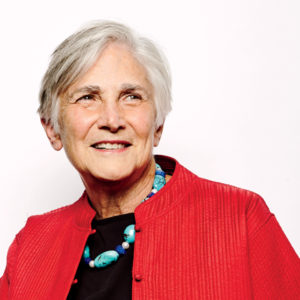Public education is one of the foundations of our democratic system of government. The public schools in every community are supported by local taxpayers, the state, and the federal government, because all of us have a direct interest in having an educated populace. Ninety-five percent of public schools are overseen by an elected school board. We pay taxes to support public schools even if we have no children; even if our children are no longer enrolled in school; even if our children attend nonpublic schools. We have a civic obligation to support public schools as we support other public services, including police, firefighters, roads and highways, public beaches, and public parks. We do not have a civic obligation to support private security guards, private swimming pools, and private modes of transportation.
The public schools have been at the center of major social and cultural conflicts. They have served as engines of progress. Thanks to action by federal courts, the movement to end legal segregation began with the public schools and eventually spread to other institutions across American society. The movement to provide bilingual services to students spread to other institutions that served their parents and grandparents. The movement for gender equality took root in public schools. The movement to include students with disabilities as full participants began in the public schools.
The goal of public schools is to equip children and young people with the knowledge and skills to sustain our democratic society. We expect the schools to prepare young people for life, for higher education, and for the workplace. Public schools bring together children from different backgrounds, who learn together and learn from one another.
The Founding Fathers endorsed public schools in the Northwest Ordinances, which set aside land for public schools before they existed. They understood that a democratic polity needed an educated populace.
Public schools belong to the community that supports them. They must make provision for every child who enrolls. Unlike voucher schools and private schools, they are bound by anti-discrimination statutes. Unlike charter schools, they cannot choose the students they won’t and reject those who are difficult to educate.
For the past decade and more, public schools have been the target of a rightwing effort to discredit them as “failing” and turn public funding over to private corporations and schools. The critics claim that students must leave public schools to get a better education at privately managed charter schools or at religious and private schools.
Over the past three decades, as privatization has spread, we have learned that privatization does not lead to better education. Independent research has shown that students in voucher schools fall behind their peers who remain in public schools. Students in charter schools get about the same academic results, on average, as their peers in public schools even though the charters choose their students. Online charter schools consistently get very poor performance and are no substitute for a good public school.
The critics have designed a propaganda campaign to blur the line between public schools and private schools, including charter schools, which are seldom subject to public supervision and accountability.
Public schools are the heart of their community. After years of neglect, they need a significant public investment, not billionaire-funded schemes to drain students and resources away from them. They need adequate and equitable funding to meet their goal of providing equality of educational opportunity. Many need capital improvements. All need experienced teachers; small class sizes, especially in the districts with the highest needs; libraries staffed by librarians; school nurses; guidance counselors; psychologists; social workers; well-equipped labs to teach the sciences; and up-to-date technology.
Our public schools are part of our democratic heritage. They educated 90 percent of the American people. They unify communities instead of dividing them. They must not be outsourced to for-profit corporations, corporations led by non-educators, or other unaccountable, unsupervised entities. They belong to the public and must remain accountable to the public.

